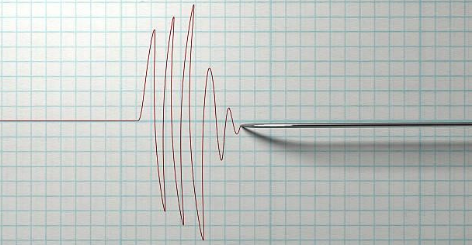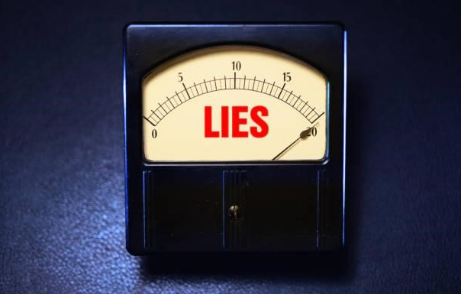Polygraph exams can serve multiple purposes in a therapeutic setting. Although commonly administered to recovering drug addicts to validate the authenticity of their disclosures, the tests may also be used in relationship counseling to help rebuild trust eroded by sexual infidelity or emotional negligence.
However, lie detector tests alone may not support full healing from substance abuse or restore fractured relationships. The efficacy of polygraphs in therapeutic settings depends on how they’re administered, the intended purpose, and other complementary techniques used.
Therapeutic Applications
One noteworthy application of polygraphs in therapeutic settings is treating anxiety disorders, such as post-traumatic stress disorder (PTSD). Administering a lie detector test to PTSD victims can empower them to discuss their traumatic experiences freely, marking a significant step towards full recovery from the emotional trauma.
Polygraph evaluations have also proven instrumental in sex addiction treatment. By submitting to lie detector tests, romantic partners can learn more about the online sexual activity of their spouses. This may encourage individuals struggling with pornographic addiction to truthfully disclose their little secret to their partners, allowing therapists to recommend an effective intervention.
In the case of mistrust, submitting to a lie detector test can help allay fears and doubts that could otherwise cripple the relationship.
Below are other common use cases of polygraph tests in therapeutic settings:
- Addressing infidelity claims
- Alcohol abuse treatment
- Drug abuse treatment
- Sex offender treatment
In a case study investigating the impact of polygraph testing in therapy, researchers polygraphed three priests in a bid to uncover their past sexual behavior. One priest failed the lie detector test, the second passed, while the third withdrew from the process.
The findings proved the sheer extent to which polygraph exams can enable therapists to uncover intimate details about their patients.

Enhancing Treatment Effectiveness in Relationship Counseling
Administering polygraphs during relationship therapy can facilitate full disclosure.
Not only can sharing the whole truth help to mend broken trust between couples. It may also foster free therapist-client communication, which is critical to the success of any counseling program.
To maximize the effectiveness of lie detector tests in relationship therapy, both partners must approach the evaluation as a shared effort.
It may be convenient to heap all the blame on the betraying spouse and treat the betrayed partner as fully unaccountable. But as many relationship experts would have it, emotional detachment or outright infidelity develops over time.
Polygraphing both partners can help disclose the extent and the triggers of unfaithfulness, setting a stage for the genuine rebuilding of trust.
However, it’s worth noting that polygraphs aren’t 100% accurate. Using the technique in therapy has also raised serious ethical concerns, including potential privacy violations.
Therapists must liaise with accredited polygraphers to conduct legally defensible tests. Besides, both partners must wilfully submit to a polygraph exam, and the test findings should strictly be used for therapeutic purposes.
Psychophysiological Insights
The polygraph technique is based on the evidence that lying arouses the autonomic nervous system (ANS).
ANS is a part of the central nervous system (CNS) that regulates several involuntary activities, including breathing, blood pressure, and skin conductivity. Telling a lie during a polygraph test amplifies these parameters, enabling polygraphers to detect deception.
However, emotions may also stimulate the autonomic nervous system and impact the magnitude of the physiological responses targeted during polygraph tests. Since most therapy sessions are inherently emotional, extreme caution is necessary to conduct proper lie detector tests.
Fortunately, polygraphers are professionally trained to administer accurate tests regardless of an examinee’s mental disposition.
A polygraph examiner will conduct pre-test interviews to gauge a would-be examinee’s emotional state. They’ll use that information to establish the examinee’s baselines, which become their normal pattern during the actual in-test phase. A deviation from this pattern would then indicate deception.

Future Directions and Opportunities for Research
The polygraph technology is still evolving, and the future signals a trend toward integrating the technique with other therapeutic interventions.
We’re likely to see lie detector tests incorporated into cognitive behavioral therapies (CBTs), enabling patients to harness their cognitive potential while stimulating desired behavior. Polygraphs may also be used to augment the efficacy of mindfulness-based cognitive therapies (MBCTs) and even biohacking technologies like neurofeedback.
Unlike other industries where the polygraph is deployed solely for discerning deception, therapists will leverage this technique to treat aberrant behaviors and foster self-improvement in their clients.
A critical area for research is the potential for integrating artificial intelligence (AI) into polygraph testing.
AI-powered lie detector machines will enable therapists to gather insightful data on their clients’ medical, behavioral, and criminal histories. Such information will then be harnessed to make accurate deductions of truthfulness or deception.

Accelerating Healing With Polygraph Testing
Integrating polygraph testing into therapy can enhance the efficiency with which counselors diagnose and treat their clients.
To address ethical concerns, such as coercion and privacy violations, it’s imperative to have all lie detector tests administered by APA certified examiners. Besides, therapists must use polygraph testing alongside other evidence-based interventions, such as CBT and MBCT.






